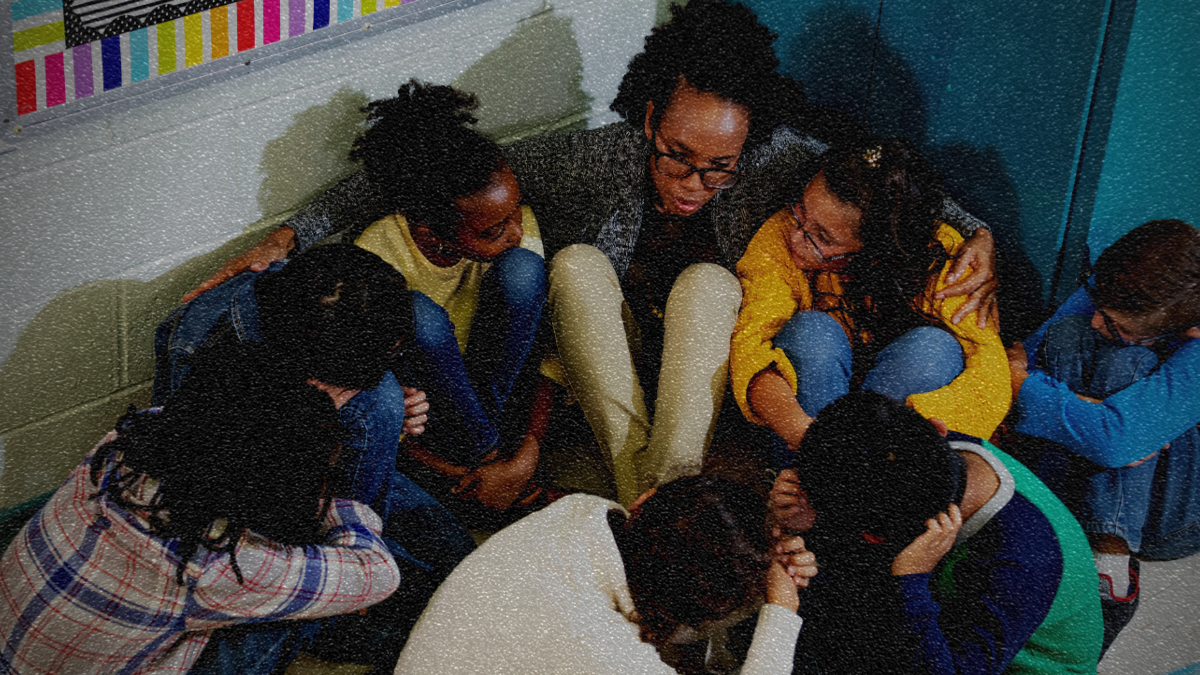Source: News & Observer
On Aug. 28, UNC-Chapel Hill was the site of what has become all too common an occurrence in America – a school campus on lockdown and an active shooter on the loose.
The university was shut down from around 1 p.m. until after 4 p.m. while police searched for a gunman who was later captured, arrested and charged with shooting and killing a physics professor inside one of the science labs on campus.
As The News & Observer highlighted, the students at UNC “have grown up in an era in which active shooter drills are commonplace in schools and hundreds of students have died in school shootings since 2000. They are called the ‘lockdown generation.'”
“It’s been weird, to say the least, that we have to dedicate a part of our childhood and growing up to learning how to be safe” in situations like the Aug. 28 incident, Alyssa Knott, a junior math major at UNC, told The News & Observer the day after the fatal shooting.
Centers for Disease Control and Prevention statistics show that Gen Z, the generation that includes those currently in high school and college, has experienced heightened gun violence, including the firearm homicide rate jumping almost 35% in 2020 alone.
Disparities in these rates when looking at race, ethnicity and poverty level have grown, according to the CDC, and the highest rates and increases were found among those aged 10-24. A Pew Research Center analysis also shows that gun suicide rates today are just below their historical peak.
Gen Z’s familiarity with shooting threats, lockdowns and actual gun violence has shaped the way they live their everyday lives here in America, one student told The News & Observer.
“To live under a constant threat of public shootings, it’s become just a life of vigilance,” said UNC freshman Danielle Kennedy.
She told the newspaper that the campus shooting immediately reminded her of a lockdown at her high school in Apex that happened just four months earlier. She also had been living nearby in Pittsburgh, Pennsylvania, at the time of the shooting at the Tree of Life synagogue in 2018. That shooting left 11 Jewish worshippers dead. The killer was recently sentenced to death for the murders.
The UNC shooting didn’t just impact those on campus, either. The day of the shooting was the first day of class for most public school students across the state and Chapel Hill-Carrboro City Schools (CHCCS) spent most of the afternoon on lockdown due to the district’s proximity to campus. District schools were put in “secure” mode, which means that all school doors were locked and no one was allowed to enter or leave the buildings.
“In a moment like that, one described as involving an ‘armed, dangerous person,’ ‘ongoing’ with a ‘suspect at large,’ we don’t know who that person may be, or where they may be. So, as a precaution, we followed our emergency action plan,” said Andy Jenks, CHCCS spokesperson.
For parents of those students, the lockdown was a stark reminder that this is the reality America has chosen for itself by allowing guns to be so easily accessed. For students, some of whom were going to school for the very first time, it was a rude awakening to what lies ahead for them.
The United States has the highest rate of child and teen firearm deaths among peer nations. Analysis of data from the CDC and other sources by independent health policy research group KFF shows that in 2020 and 2021, firearms also contributed to more deaths in U.S. children ages 1-17 than any other type of injury and illness.
North Carolina’s rate of child and teen firearm mortality ranks above the nationwide rate.
Parents told The News & Observer that this is just the world their children will now have to grow up in.
“As terrible as it is, it’s part of their reality. And it’s something they should be aware of and know why they’re being held,” said Nikolai Hayes, 35, who has a 6-year-old son that was put in lockdown on Aug. 28.
Michael Venutolo-Mantovani, who has a son in elementary school and a daughter in child care in Chapel Hill, told the newspaper that he grew up in the 1990s when a school shooting, such as Columbine, “was an anomaly. And now it’s become commonplace.”
He said he and his wife talked to their son about the shooting but didn’t tell him that someone was killed.
“Now that I have babies growing up in this environment, it’s something my wife and I have to reckon with,” he said. “Obviously the fear of school shootings is real in America, and to have them in a lockdown on his very first day of kindergarten just kind of amplified the American experience.”





